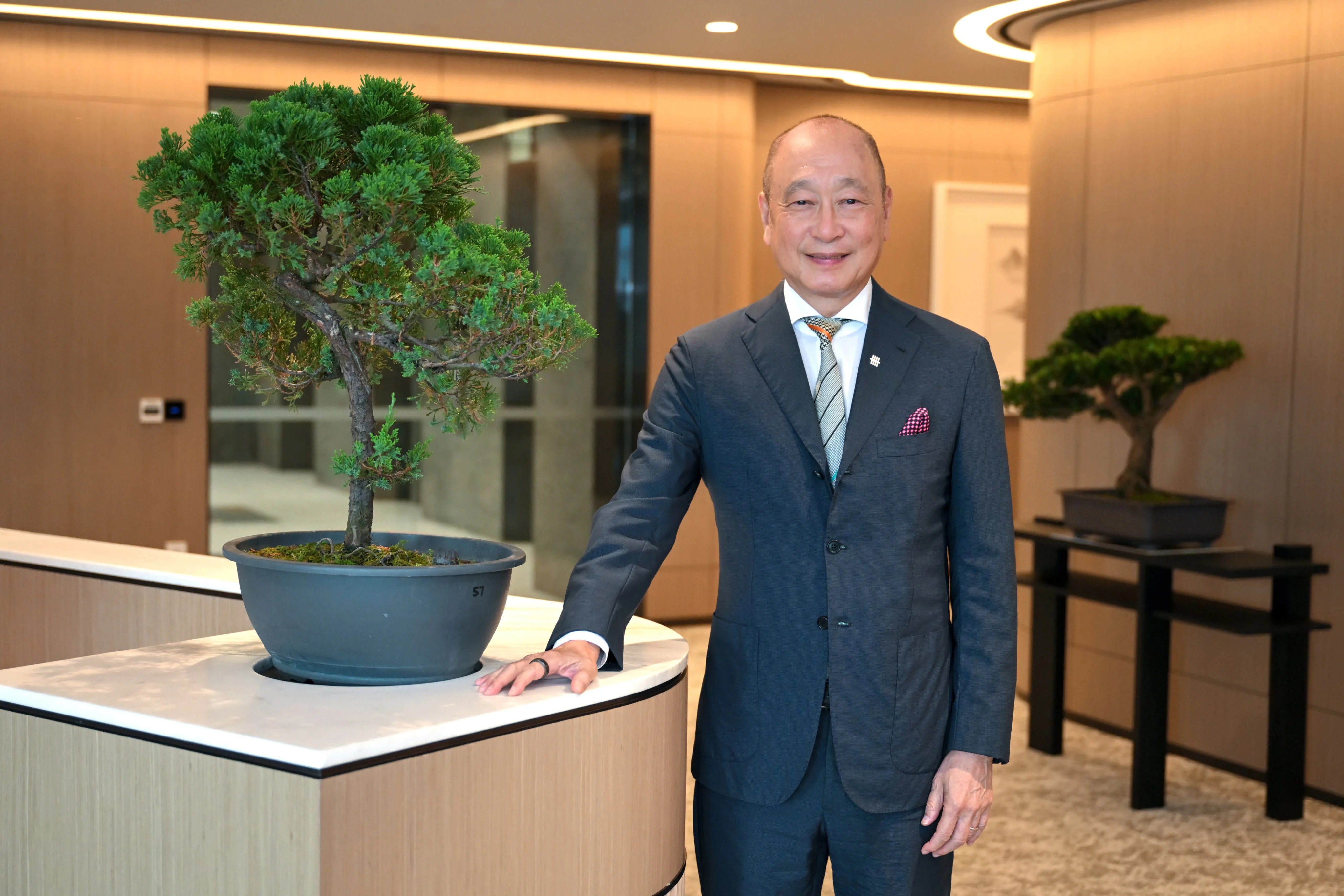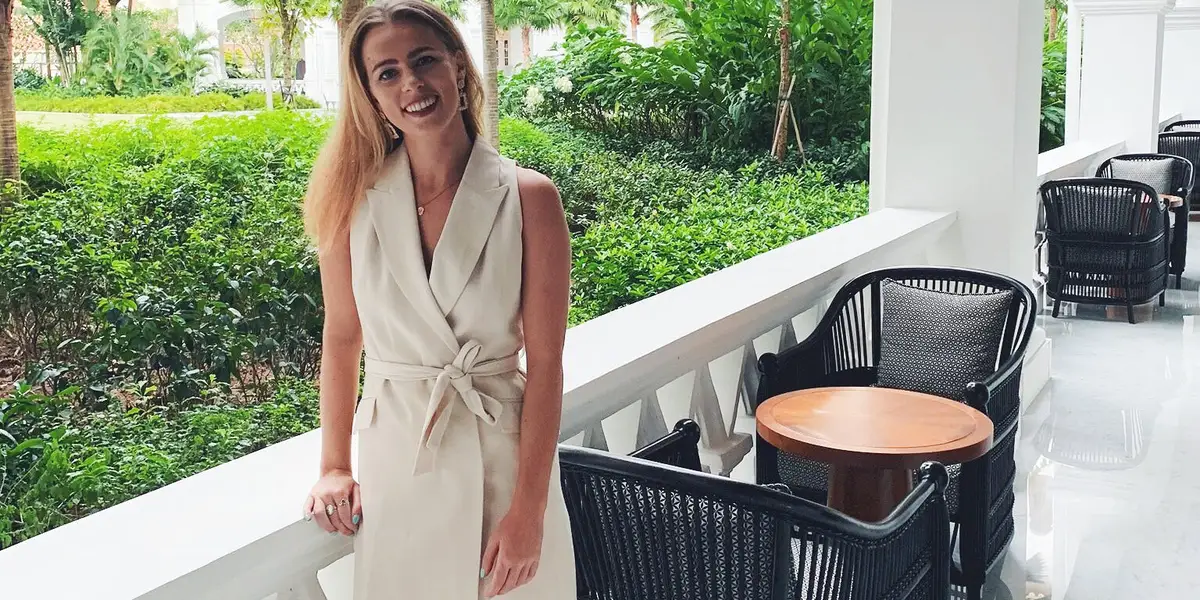Copyright scmp

Wee Ee Cheong leans back in his chair in the boardroom of UOB Plaza and behind him a deep green bonsai peeks into view from a shelf, poised like it is meant to be part of the conversation. Wee’s minders had told us not to be surprised if he talks about his beloved plants. It is his hobby, after all. A lush bonsai graces the cover of the bank’s annual report for its 90th anniversary, a nod to the enduring roots of Singapore’s only remaining family-controlled bank. But he shows little interest in discussing horticulture – until he is prompted to do so at the very end. Still, the metaphor of nurturing resilience winds its way into the interview as Wee talks about legacy and the need to secure the future of an institution founded by his grandfather, Wee Kheng Chiang – a Hokkien born in Sarawak – and which his father spent a lifetime cultivating before the son took over in 2007. “Looking back, I’m happy to take that legacy and just continue to move forward, but I think it’s more than just a legacy. I think stewardship is the most important; to make the bank more forward-looking, more future-proof,” he said about UOB’s ambitions. “Legacy is just your own personal thing. To me, let’s take aside the personal part and look more at how to inculcate a stewardship mentality.” We want to be the No 1 trade bank, and you can say most of it is China-driven Wee Ee Cheong, UOB’s CEO Over the decades, many of Singapore’s family-owned banks have either been sold or merged with others. As recently as the early 2000s, government regulators considered the domestic market too small to sustain more than two local banks, encouraging the others to consolidate. Today, United Overseas Bank is the city state’s third-largest lender by assets held, after the Oversea-Chinese Banking Corporation and the Development Bank of Singapore (DBS). Like other companies, Singapore’s banks are grappling with the impact of geopolitical uncertainties, the fallout from the US-led tariff war and downward pressure from global rate cuts. Yet bad loans are very low, even as provisions for them have increased, and confidence in the sector remains strong, as seen in the banks’ robust share performance that lifted the local stock market in the first half of the year. The three banks make up just over half of the Straits Times Index’s total weighting, with DBS hitting record highs earlier this year. While DBS is ahead of the pack in artificial intelligence and innovation, UOB is meriting a second look these days as it doubles down on becoming Asean’s leading trade bank. In 2001, Wee’s father, the late Wee Cho Yaw, took a bold leap to acquire Overseas Union Bank in a S$10 billion deal, personally inviting founder Lien Ying Chow to sell his stake and thereby engineering Singapore’s largest corporate takeover at the time. Wee Ee Cheong, who assumed the CEO role in 2007, was known for preferring to mostly stay in the background, happy to let his father be the resolute face of the bank. But in 2022, Wee masterminded his own bold move – leading UOB’s S$4.9 billion (HK$28.3 billion) acquisition of Citibank’s consumer banking operations in Indonesia, Malaysia, Thailand and Vietnam. The deal delivered a ready-made customer base of 8.5 million and expanded UOB’s regional footprint considerably – reflecting its ambition to become the foremost bank in the Association of Southeast Asian Nations. To that end, it has worked on providing an integrated platform to allow seamless fund transfers and efficient deal-making across jurisdictions. “The connectivity means everyone must hold our hand; you must have a common platform, otherwise you are just a collection of banks,” Wee said, emphasising the importance of interoperability. UOB insists that cross-border transactions within its Asean network are much easier than with other banks, pointing to how the countries in which it has a presence represent 70 per cent of the region’s total gross domestic output. The bank is also particularly strong in the Johor-Singapore Special Economic Zone (JS-SEZ). Last month, UOB launched a pioneering redemption mechanism that enables Singapore customers to offset bills at more than 150 merchants in Malaysia’s Johor state using their rewards points. For companies looking to set up shop in the JS-SEZ, UOB launched a fast-track service in partnership with government agency Invest Johor in February. Since 2024, the bank has managed S$3.3 billion in trade in the zone, becoming one of its biggest facilitators. Connecting customers is also central to UOB’s rewards strategy. When Taylor Swift performed in Singapore in early 2024, the bank secured priority bookings for all its cardholders across the region – a huge win in the competitive rewards market. Looking ahead, UOB is determined to be the top cross-border trade bank in Asean. It has invested heavily in the foreign direct investment business, acting as a matchmaker between capital, investors and businesses looking to grow. Since 2011, its 11 FDI advisory units, spanning markets from Hong Kong and Indonesia to Vietnam, have provided one-stop support for companies setting up regional operations. Asked whose idea it was to go big on Asean, Wee demurs. Was it him or his father? “I wouldn’t say whose idea, but I think my father planted the seed. It’s easy to grow, easy to make babies, but at the end of the day, to bring the kids up, to operationalise it, this is where it is my challenge today. To buy is easy, it’s just a transaction. After buying, it’s how you manage, that’s a different skill set now,” he said. UOB has been deliberate in its acquisitions, favouring smaller banks to simplify integration and limit risk. “The analyst would tell me, ‘Mr Wee, why buy such a small bank? It’s a rounding off number, how are you going to grow?’ I said I can’t even pronounce the name of the street the bank is on, but do you expect me to go and buy a Bangkok bank? If they go down, I go down together with them,” Wee said. A notable exception was UOB’s purchase of a majority stake in Bangkok-based Bank of Asia for US$554 million in 2004, merging it with Radanasin Bank, acquired in 1999. For the elder Wee, these moves were a “portfolio play” to “plant the seed”. For his son, the task now is to harness the latest technology and resources to find new ways of doing business across the region. Although acquisitions still feature in UOB’s strategy, Wee points out that few banks are available for purchase except in times of crisis. The Citibank deal, for instance, was struck at the height of the Covid-19 pandemic. “When things are bad, when the water level goes down, you can start to see what is happening. When things are good, you can’t tell, so we made a decision to say this is the best time. And I think, true enough, you can see the portfolio is quite resilient.” As of June, UOB’s total assets stood at about S$537.8 billion (HK$3.29 trillion) , with subsidiaries in China, Indonesia, Malaysia, Thailand and Vietnam, and a network of some 500 offices across 19 countries and territories in the Asia-Pacific, Europe and North America. With a presence in eight of Asean’s member states, UOB touts itself as a key connector across the region and along important trade routes such as Asean-Greater China. Despite the bank’s stated goal of being the region’s leading trade bank seemingly being at odds with Washington’s ongoing trade war, Wee says that less than 10 per cent of UOB’s customer base is dependent on the United States. Instead, most clients are focused on intra-Asean trade or business with China and India – markets that, in Wee’s view, may present even more opportunities. “Among Asean, we have to work closer together so that, in a way, gives us a full advantage,” he said, noting that the seeds had been planted but the bank’s people now needed to execute. “This is why, in our mission statement, we want to be the No 1 trade bank, and you can say most of it is China-driven – China is buying, China is selling.” Asked what advice he would give to companies and governments operating in the region, Wee said drily: “You have to persevere. You’re dealing with different cultures; you cannot have a Chinese culture and go to Indonesia and behave in a Chinese way.” “They must have the ability to navigate, to understand the culture, to be more humble … I always tell my colleagues, you have to be humble because you’re stepping over into somebody else’s country,” he said. To bridge cultural divides, UOB hires local staff, including as country CEOs, and sends Singaporeans from head office on cross-cultural exchanges. “At the end of the day, if you look at UOB in 10, 15, 20 years from now, we will have Asean management or even a Singaporean with Asean exposure,” he said. Turning north, Wee said he thought Hong Kong would succeed because it had Beijing’s backing. “China is a big country … but if you have a visionary leader of China, Hong Kong will be OK. Hong Kong has one country, two currencies. It’s a hybrid,” he said. He acknowledged some current difficulties in Hong Kong’s property market and the trend of consumers heading to Shenzhen for better deals. “But five, 10 years from now, things will slowly equalise. There are still people seeing value in Hong Kong. Hong Kong is a little bit more Western, it gets the best of both worlds.” Singapore, by contrast, has only itself to rely on, he says. Nevertheless, Hong Kong and mainland China are important for UOB, both as a conduit for Chinese capital into the region and as a channel for Asean businesses looking to expand into China. UOB beyond Wee Now 72, Wee is preparing for succession and says he will not be too upset if none of his three children – all of whom have started their own businesses outside the bank – are likely to take over in an executive capacity, so long as they are doing what they enjoy. “At some point, they may be at the board level to provide the oversight function to make them feel that this is an empire, developed by the grandfather, great-grandfather, and they should feel they are part of it,” he said, noting that his children could still contribute as board members while running their own ventures. Wee said he had nurtured a leadership team over the past decade from whose ranks a future CEO would be chosen. “We do have a certain indicated timeline; the next three to four years, I think we should be ready … I am more than ready now. I just want to make sure that everything is in place,” he said. “The young and old, we can work together, no problem. That is not a major issue for me, I’m not an ego person to say I must hold on, that is not real. To build stewardship, it’s not the way to do it. It’s the culture and the mindset of the people.” At last, the bonsai enters the conversation. Leaning back once again, Wee reflects on the ties between family and bank, suggesting equanimity is the order of the day. “At the end of the day, the trunk will be the same. The colour of the leaves may change a little bit; different people, different colours, but at the end of the day, it’s how to preserve the trunk.” That trunk, he explains, represents the bank’s deep cultural values: stewardship, discipline, stability and the way it treats people. “That’s something that’s part of our DNA.”



